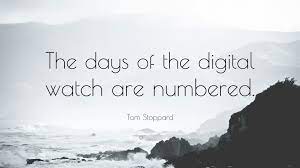One of my camping buddies is a musical savant. Peter can play any song he has ever heard, a human Spotify without the concomitant $9.95 recurring charge.
What about tunes he has never heard before? Peter listens to the first verse—I met him on a Monday and my heart stood still—has figured out the chords by the second verse, I knew what he was doing when he caught my eye. By the time the third verse comes around, he is playing along note for note—He picked me up at seven and he looked so fine. His ability is prodigious.
My point this week is not that I could ever acquire this skill. Yes, I could sit on a rock studying music for a hundred years and still not be able to determine whether Eleanor by the Turtles is in the key of E minor. (Your looks intoxicate me, even though your folks hate me–kinda sums up the 60s in my view. But I digress.) Whereas Peter can conclude what key the song is in before you can remember any of the reasons your first girlfriend’s mother despised you. Instead, I wish to address how Peter came by his preternatural skill. Why is Peter able to perceive melodies, play along to songs he’s never heard, understand the structure of any tune?
But first a timely (sorry) example. Tom Stoppard remarked that the days of the digital watch are numbered. How do children learn to tell time on analog time pieces? Did their parents show them a clock with its hands at ten and two and say, it’s 1:50? And then move the minute hand one tick and say, now the time is 1:51? Were children expected to memorize 720 (12 hours times 60 minutes) positions?
Of course not. Fundamental principles were imparted—the big hand tells the hour; each of the numbers one through twelve of the minute hand shows five minutes. Children learning to tell time don’t remember each and every possibility. They develop an understanding. Which subsequently becomes automatic. When was the last time you heard an adult say, hmm. Five, ten, fifteen. It’s a quarter after six. Answer: never.
Nor can all the possible multiplications be memorized. Sure, 19 times 21 equals 399. But that doesn’t help your child to determine that 42 times 38 is 1596. Learning how to multiply requires remembering the times tables up to nine times nine. That’s it for memory. For two-digit multiplication, an underlying conceptual understanding is necessary.
And consider morality: we don’t teach our children, don’t steal $10 from a blind man’s cup; don’t steal $20 from a blind man’s cup; don’t steal… We explain why stealing is wrong. The children extrapolate to other examples. Don’t steal ten dollars from a blind woman’s cup either. Don’t take advantage of the differently abled. In general, avoid being a felon.
Peter didn’t learn “Draggin’ the Line” by Tommy James and the Shondells then move on to Creedence Clearwater Revival’s “Fortunate Son” before absorbing Smokey Robinson and the Miracles rendition of “The Tears of a Clown.” (“Just like Pagliacci did, I try to keep my sadness hid.” Genius.) Determining that a song is based on a one, four, five chord progression is easier when the structure—the template—is ready to be recognized. Aristotle said that there are only a few unique plots. Peter might argue that countless thousands of Billboard pop songs fit into a reasonably limited number of patterns. Going the other way—learning each song independent of all the others–would be too arduous a task, even for an authority like Peter.
It is similarly both onerous and impossible to prepare our kids for each uniquely moronic situation. “Should I smoke pot possibly laced with opioids? Should I smoke pot possibly sprinkled with rat poison? Should I get in this car? Should I trade my cow for some magic beans? Should I have unprotected sex with this man wearing an STDs are us shirt?” Our kids must have the ability to group all these possibilities together under the heading “ideas: bad.”
Allowing our beloved children to collect their decisions under one heading—would my parent think this is a good idea?—is a step in the direction of recognizing some exquisitely beautiful music.






